First, let me apologize for all the spelling errors in last week’s Post (now corrected). I am recovering from Shingles (ugh!! If you can get the Shingles vaccine, please do!), and it was hard to concentrate.
This concludes the medical segment of our program.
Part One: The Thirty-year Search

.
I was chrismated on September 16, 1989.
In 1999 I wrote an article giving my reflections “Ten Years Later”. Again in 2009, “Twenty Years Later”. Now, by God’s mercy and grace, I am still here “Thirty Years Later”.
To understand what “Being Orthodox” has meant to me, I’m afraid I’ll have to give you a lot of personal history about how I finally got here. Like molasses in January, as we used to say back home. For my story is unlike that of many others who knew they were missing the Church, so sought and found it. In my case I thought I had found the Church, then many years later to my horror discovered I had not.
Seminary
One Saturday afternoon in the spring of 1959 God overwhelmed me with his presence and gave me a strong interior call to ordination. I know private revelations are dangerous. But this was so compelling that to deny it would have ripped me apart. This amazed everyone who knew me, including me. I had only occasionally gone to the campus Methodist church. I, the science major, knew very little about religion. When I told my pastor, he gave me a very quizzical look and said “Let’s get you some vocational testing.” It turned out “minister or social worker.” Looking back sixty years later, I guess it was “for real”, wasn’t it?
In 1960 I entered Garrett Seminary in Evanston, Illinois 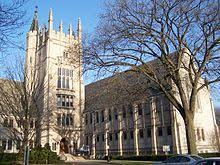 which was in process of going “liberal”. They taught us to let nobody tell us what to believe. “You must figure it out for yourself.” Which, of course, in one sense is true. God gave us free minds with which to think, and consciences to follow. But there was an obvious “catch” here. I soon realized I could spend the next ten years trying to research only one theological topic by myself, and I still wouldn’t be sure. I thought: I should determine Reality all by myself? and go out and take peoples’ souls into my hands and preach and teach my own opinions? That was ridiculous. Dangerous!
which was in process of going “liberal”. They taught us to let nobody tell us what to believe. “You must figure it out for yourself.” Which, of course, in one sense is true. God gave us free minds with which to think, and consciences to follow. But there was an obvious “catch” here. I soon realized I could spend the next ten years trying to research only one theological topic by myself, and I still wouldn’t be sure. I thought: I should determine Reality all by myself? and go out and take peoples’ souls into my hands and preach and teach my own opinions? That was ridiculous. Dangerous!
The Search
By the fall of 1961, I concluded that either I had to find a higher authorIty to lead me, or I was going to have to go agnostic – despite the fact that I still had the powerful interior call to ordination.
Somehow I decided the place to begin was the Christian “mainstream” – find out what most Christians had believed and taught and done, and try to follow that. (Later I learned of C.S. Lewis’ Mere Christianity and Saint Vincent of Lerins and the Faith which “has been believed everywhere, always, by all.”)
You can already see where this was going, can’t you? Many of you have been through this same process of seeking the “Ancient Faith”.
So I searched. At one time I had over forty books on my desk. My roommate thought I was losing my mind. I was startled to discover that “mainstream” Christianity had been creedal, sacramental, liturgical, had bishops in succession from the Apostles, monasticism and much more. (I told you I knew almost nothing about religion.) Many books referred to “The Church says”. I didn’t even know what that meant. The church I knew never “said” anything.
I read about the various denominations and visited Sunday services.
Evangelicals: no way.
Methodist, where I then was? Traditional Methodism qualified in some ways, but American Methodists had largely abandoned it. We did have a British professor who taught us the Creed straight – to whom I am forever grateful and for whom I pray every night. But now even belief in the Trinity was optional. (The dean of students himself told me.) So Methodist? I couldn’t continue there.
Lutheran? Admirable, but not ancient and too narrow, so No.
Roman Catholic? They had much to recommend them in those days, but there was nothing ancient about the papacy and their new dogmas. And I couldn’t imagine not being married and having a family. So No.
Orthodoxy? That certainly sounded like the Real Thing, so I visited some churches when I could. (Remember, now, this was almost sixty years ago.) Everything was in Old World languages (except for one announcement in English: “We need Sunday School teachers!”) and there was almost no English language literature. I concluded one had to be born into that.
Anglicanism
So I turned to Anglicanism* as a sort of Western Orthodoxy. One could make a good argument for it in those days. I read and visited churches, including a very Anglo-Catholic church where, to my shock, I loved all the liturgical commotion. I had always despised such “fripperies”. What was happening to me?
- The American branch of worldwide Anglicanism is the Episcopal Church. I’ve stuck to the term “Anglican” here to avoid confusion. I hope.
I learned, either by hearing or by reading, from Anglicans who taught the “Catholic” Faith as we called it, genuine Patristic Christianity. Read the superb works of the 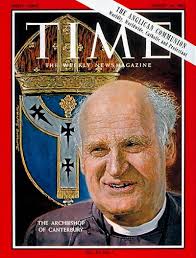 Archbishop of Canterbury Arthur Michael Ramsey, whose theology was right out of the Fathers. And Professor J.V.L. Casserley (now forgotten) and many others who taught the Faith, albeit with a Western accent. I learned that Anglicanism was Catholic with a few Protestant tendencies because it had been caught up by the Reformation, but that the Catholic Religion was now sweeping over modern Anglicanism like the incoming tide, like “the waters of the flood” as one Church of England Benedictine monk put it. And that had indeed been the case since the mid-19th century. I thought I had found the “Ancient Church”. In 1962 I was confirmed in that Anglo-Catholic parish in the Anglo-Catholic Diocese of Chicago, in the Anglo-Catholic central Midwest.
Archbishop of Canterbury Arthur Michael Ramsey, whose theology was right out of the Fathers. And Professor J.V.L. Casserley (now forgotten) and many others who taught the Faith, albeit with a Western accent. I learned that Anglicanism was Catholic with a few Protestant tendencies because it had been caught up by the Reformation, but that the Catholic Religion was now sweeping over modern Anglicanism like the incoming tide, like “the waters of the flood” as one Church of England Benedictine monk put it. And that had indeed been the case since the mid-19th century. I thought I had found the “Ancient Church”. In 1962 I was confirmed in that Anglo-Catholic parish in the Anglo-Catholic Diocese of Chicago, in the Anglo-Catholic central Midwest.
In time my bishop sent me off to the General Theological Seminary in Manhattan, where 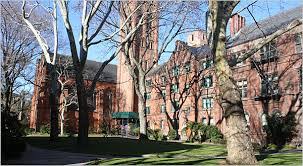 some students had more “Protestant tendencies” than I had expected, but most of the teaching was solid, I thought. I was ordained to the priesthood, and was assistant in a
some students had more “Protestant tendencies” than I had expected, but most of the teaching was solid, I thought. I was ordained to the priesthood, and was assistant in a 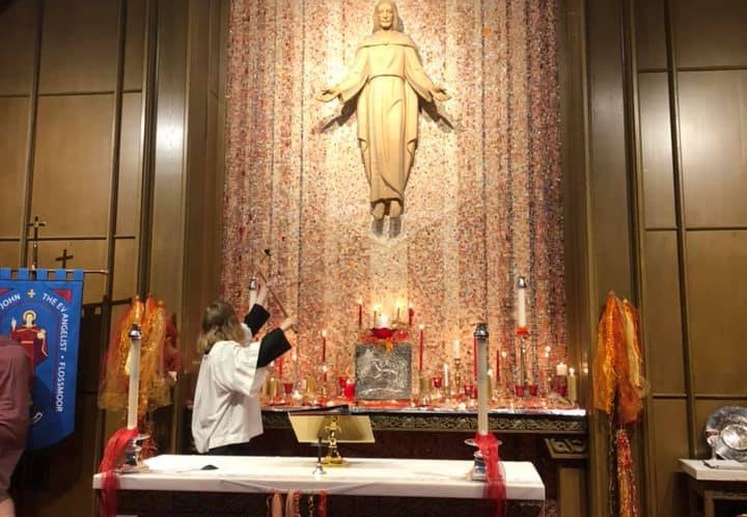 big “moderate Catholic” parish (which meant sound in Faith, had daily Mass and even Confessions, but no incense!) outside Chicago. There I found and married the love of my life. Such a happy time it was. Then to a little church in the Anglo-Catholic Diocese of Milwaukee, where even our few “low church” people were believers. That was in 1968.
big “moderate Catholic” parish (which meant sound in Faith, had daily Mass and even Confessions, but no incense!) outside Chicago. There I found and married the love of my life. Such a happy time it was. Then to a little church in the Anglo-Catholic Diocese of Milwaukee, where even our few “low church” people were believers. That was in 1968.
anglicanism … … …
That was then. But by 1976, it was already coming clear that “the tide” was turning. After over a century, the “waters of the flood” of the Catholic Faith were withdrawing. We suddenly had bishops and priests who openly denied the Faith, even denled Christ – and so much more. Soon even my own diocese was losing its identity. We were not so slowly going the route of the Methodists, only with vestments.
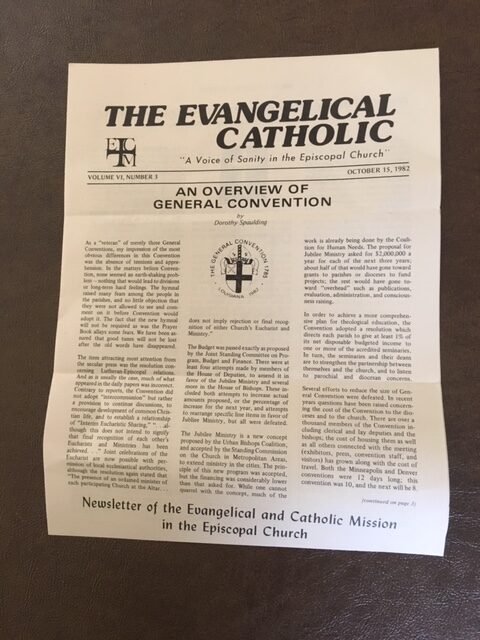 We “traditionalists'” first reaction was to restore traditional Anglicanism. We formed organizations to preserve “the Church”. I edited a newsletter for one of them. As you can see from the title, even we weren’t quite sure exactly what traditional Anglicanism was!
We “traditionalists'” first reaction was to restore traditional Anglicanism. We formed organizations to preserve “the Church”. I edited a newsletter for one of them. As you can see from the title, even we weren’t quite sure exactly what traditional Anglicanism was!
I was beginning to suspect that Anglicanism itself had never been what I had thought (pretended?). It was now returning to normal, its old 16th century amalgam of everything from Calvinism to “optional Catholicism” to militant theological liberalism (everything is permissible, so long as it’s what we think!) and the liberals were winning. Now when people showed up at the door of my church God only knew what they believed. I had to start from scratch with almost everyone. Nevertheless the parish grew and prospered. People were happy.
I was not. By the early ’80s I felt sure that Anglicanism as I knew it had failed. I stopped writing for the “traditional Anglican” group. For a while I went through a genuine grief process.
All this affected me personally. I became distrustful, narrow and focused on a few controversial issues, negative and frustrated as we lost battle after battle. I lost my sense of humor. I wasn’t having fun any more. I was becoming cranky.
Not surprisingly this also began to affect the parish, as I tried to make them an “odd man out” in the diocese. We were no longer growing. In sermons as I tried to teach the Faith, I found myself shaking my finger at people – not the most effective technique! I remember a parish woman saying to me, “I just wish we could get the old Father Bill back.” But no. I was feeling desperate, compromised, like a Ford salesman who no longer believed in Fords.
Mind you, in all this, I am not denigrating Anglican people. I knew some who were genuinely holy, who I think were saints. Almost all Anglicans were generous, kind and well-intentioned. I still love and am deeply grateful to the kind of Anglicanism I knew. That’s where I learned the Faith.
Orthodoxy?
So quietly I began to search again. I even looked at Evangelicalism – for about two minutes. At least they all seemed to believe in Jesus! Roman Catholicism? Not the way they were now going. I read more about Orthodoxy. It seemed like the only thing left. But I thought Surely it’s wrong to join a church for negative reasons, because there’s nothing else. Anyway we had two kids nearing college. How could we afford to change now even if I wanted to? So… maybe after I retired. Till then I figured I’d just have to go on and on faking it.
Then in 1985 something unexpected happened. My Vestry (parish council), probably thinking all I needed was a break, gave me the summer off – and money! Dianna, Jennie, David and I did western Europe for a month, then they flew home from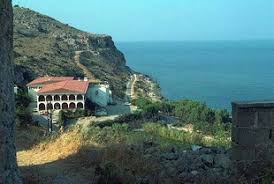 Rome, while I headed to Greece to attend a conference for Americans of all sorts, at the Orthodox Academy on Crete. I went with no ulterior motives. I think. Although in retrospect…?
Rome, while I headed to Greece to attend a conference for Americans of all sorts, at the Orthodox Academy on Crete. I went with no ulterior motives. I think. Although in retrospect…?
At the Academy in every discussion I found myself taking the Orthodox view. I concluded that theologically I really was Orthodox. Then I spent ten days bumming around alone on the island of Paros – something I had always wanted to do. (Thank you, dear wife.) I visited churches big and small, 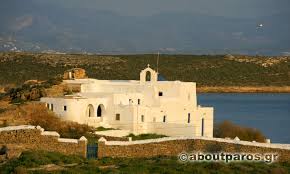 monasteries, saw Liturgies and one afternoon a riotous Baptism (OK, I hit the beach, too.) I didn’t understand much, but there was something I sensed: mystery, a depth beyond anything I had known before, great holiness, yet a family feeling, people “at home in heaven” – and more I couldn’t express in words. Still can’t. At the end, I had fallen in love with Orthodoxy.
monasteries, saw Liturgies and one afternoon a riotous Baptism (OK, I hit the beach, too.) I didn’t understand much, but there was something I sensed: mystery, a depth beyond anything I had known before, great holiness, yet a family feeling, people “at home in heaven” – and more I couldn’t express in words. Still can’t. At the end, I had fallen in love with Orthodoxy.
When I arrived home, my wife, seeing something different about me, asked “Do you want to be Orthodox?” I said “No.” I was lying.
But all the while I was very fearful of Orthodoxy failing, as Anglicanism had before. My Anglican friends told me that Orthodoxy was bound to go the way of all other churches in the modern world. I thought I couldn’t handle that twice in one lifetime.
Orthodoxy!
I began to I read much. (I’m afraid in some ways I neglected my parish.) Was this the original Church? Yes, in every way. I attended some weekday Liturgies over here. Was this the same Orthodoxy as over there? “Strange” forms to my Western eyes and ears, but Yes. But now there was a fair amount in English, and a wealth of English language literature, all of which taught exactly the same things.
Was there really genuine unity in the Faith? I asked a Greek priest, “What’s the difference between you and the Russians?” (In the West such ethnic, organizational and historical differences always led to much theological and liturgical diversity.) He pulled out a Liturgy book and said, “Well, at the beginning of the Divine Liturgy we use “these” antiphons and they use “those”. “What else?” I asked. He said, “That’s about it.” As I was to discover, Yes, that is “about it”!
When Father Tom Hopko was in Milwaukee leading a conference, he graciously took 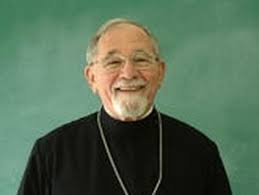 time to talk with me. He told me, “In the Orthodox Church there is absolute theological unanimity.” He said that if I wanted to be a valiant defender of the Faith, I should stay Anglican, because as an Orthodox priest I would be “just one of the guys”. That sounded so good. I was tired of fighting.
time to talk with me. He told me, “In the Orthodox Church there is absolute theological unanimity.” He said that if I wanted to be a valiant defender of the Faith, I should stay Anglican, because as an Orthodox priest I would be “just one of the guys”. That sounded so good. I was tired of fighting.
I went east to visit a former Anglican, now Orthodox, friend who took me to parishes, a monastery and Saint Vladimir’s Seminary. There I heard a heated debate between Father Tom and Dr John Meyendorff over whether in the Incarnation Christ took on “fallen” or “unfallen” human nature. They really went at it! This at a time when some Anglican theologians were denying the Incarnation entirely.
I was convinced.
In Posts 2 and 3 you can read much more that happened at the time, especially involving Saint 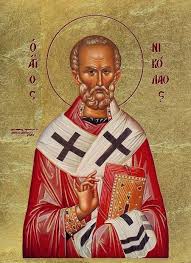 Nicholas who told me… well, go back and read it for yourself, if you haven’t. I did some very difficult, and probably some crazy (stupid?) things. God did some miraculous things, I believe. All the while, the only way I could describe what was happening to me was “entering into the light”.
Nicholas who told me… well, go back and read it for yourself, if you haven’t. I did some very difficult, and probably some crazy (stupid?) things. God did some miraculous things, I believe. All the while, the only way I could describe what was happening to me was “entering into the light”.
In the end my bishop fired me. It was terrifying. It was one of the greatest blessings of my life.
Orthodox
So on September 16, 1989, I was chrismated, along with my wife and a few other Episcopalians, and was joined to the Holy Orthodox Church. Home at last!
Next Week: Thirty Years Later, Part Two – What it has been like Being Orthodox
Week after Next: We begin a whole new series on The Divine Liturgy
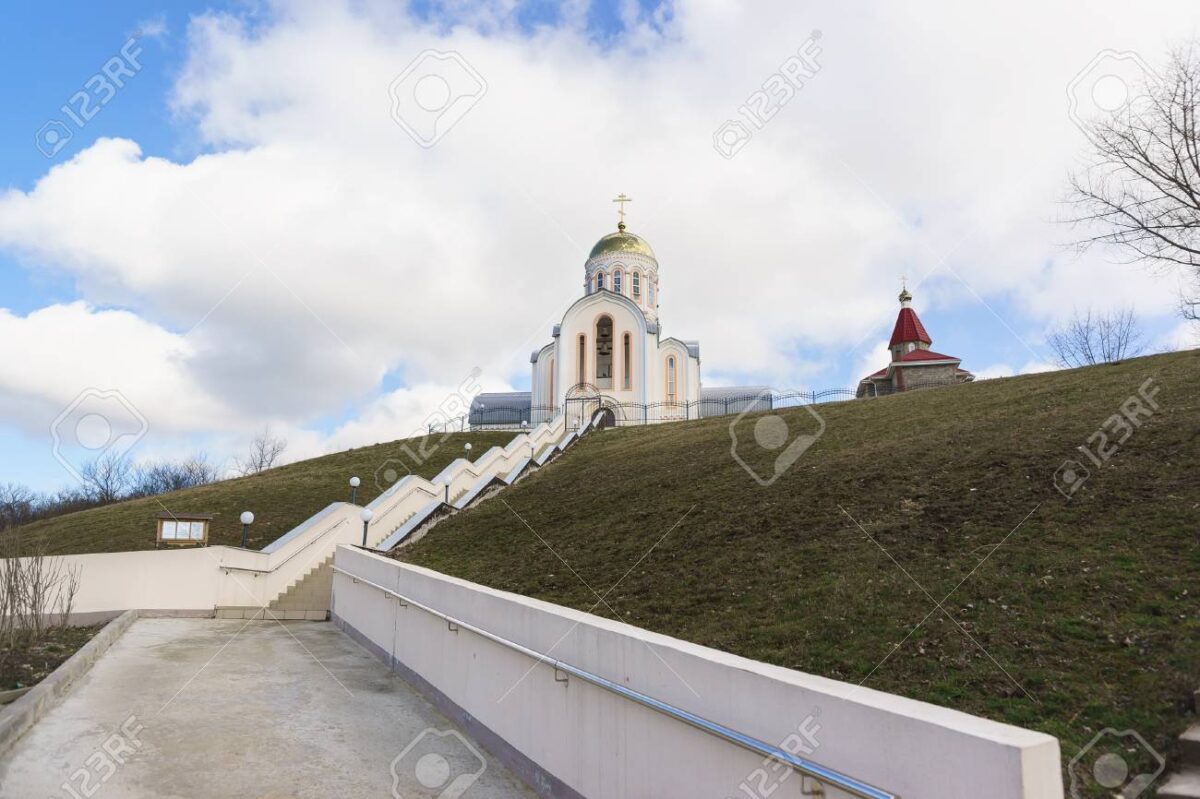
Through the intercessions of St. Panteleimon and St. Luke, Lord have mercy and heal you.
Thanks, Malachi. God bless you. I’m coming along – this just takes a while.
Thank you for your wonderful blog– I only discovered it yesterday, and immediately became a subscriber. Your journey to the Orthodox Church in many ways run parallel to mine. Like you, I have been Orthodox for 30 years; I was received on Holy Saturday, 1989. Before that I was Roman Catholic for 20 years, and before that I was brought up Episcopalian. I had never heard of Orthodoxy until 1988. It seems to me that Orthodoxy is the world’s best-kept secret! I thank God every day for leading me to the true Church. Much love to you– Catherine
May the Lord remember your priesthood in His Kingdom!
Father Bill, thank you for telling your story. I love your blog and read it often. You witness to God’s miraculous works in our lives, very often through his precious saints. (I also have a special friendship with St. Nektarios.)
your servant in Christ,
Deacon Nicholas
Hello Father , just discovered your blog , read this post …. and had to subscribe! I’m in the midst of the “discovery/exploratory” of EOC now. From what I’ve read, you’re correct, many converts have a meandering way to The Way. I began life in a RCC family , 12 + years Catholic schooling, abandoned it for 30+ years in various Protestant denominations – and witnessed the downgrade there – to now “find” Orthodoxy. Like you I had always know EOC existed , and always pasted it off as “Catholic lite” and “for THOSE people over there”. Man, was I wrong!
I rejoice knowing that there IS a Church that “the gates of hell have not prevailed against…”
Pray for your healing….
Thanks. Yes, the Eastern Orthodox Church can be hard to find and then to accept because it is “Eastern”. I finally realized that Christ and the Apostles and the ancient Church and the Holy Scriptures are also Eastern, and it’s hard to understand them correctly without attaining an Eastern mindset. God bless and guide you in your exploration.
Thank you Father.
I’d recommend getting the shingles vaccine that isn’t made from murdered baby parts. Fortunately, there is one.